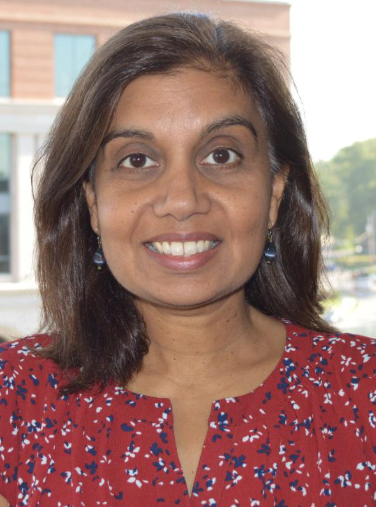Professor Mytheli Sreenivas is the Chair of Women and Gender Studies at The Ohio State University. She serves in a joint appointment with OSU’s History Department. She holds a Ph.D. in Modern South Asian History and a Graduate Certificate in Women’s Studies from the University of Pennsylvania. Sreenivas specializes in modern South Asian history with a special focus on women’s studies, changing gender roles, and the complex processes by which developments in family structures connect with the larger political shifts in nationhood. She is the author of two books, Wives, Widows, and Concubines: The Conjugal Family Ideal in Colonial India (Indiana University Press, 2008), and Reproductive Politics and the Making of Modern India (University of Washington Press, 2021).

Professor Sreenivas first began working with the Journal when it was housed at The Ohio State University. She was invited by co-editors Judy Wu and Guisela Latorre to work on a special issue centered on the 40th anniversary of Roe v. Wade. Her research in South Asian history and reproduction studies added an important transnational feminist perspective to the special issue, aiding in the volume’s expansion beyond the specific history of Roe v. Wade. As she explains, “the idea was to kind of do something that wasn’t just about Roe v. Wade, but to think more broadly about reproductive issues, feminist writing, and thinking” (Sreenivas, p. 3). Her leadership with the Roe v. Wade special issue was so generative, she was asked to fill Judy Wu’s co-editing position two years later. She served as a co-editor for two years and credits the interdisciplinary and arts nature of the Journal with pushing her own research in new directions.
In addition to contributing her expertise in transnational feminisms, reproduction, and South Asian history to the Journal, Sreenivas was a strong advocate for engaging with emerging scholars. This vision of Frontiers as a welcoming and generative space for the cultivation of new voices is a theme that connects many of the oral history interviews. As Professor Sreenivas notes, one of her favorite memories of the Roe v. Wade special issue was the inclusion of both established and emerging scholars, a “diversity of scholars” (Sreenivas, p. 4) that was reflected in the essays as well. She further notes the special currency of advanced graduate students and recent Ph.D. graduates in engaging with the cutting-edge issues of the day, such as reproductive technologies.
Like her co-editors, she was committed to fostering essays from rough drafts to strong, finished papers, from internal reviews to external reviews, explaining that she often got attached to the work of emerging and lesser resourced scholars. In her view, working with new academic voices over multiple revisions was a way that she could help shape the field of women’s studies. Seeing an essay published in Frontiers lead to an author’s published book was an additional marker of the Journal’s success in mentoring new writers.
Find more about Professor Sreenivas here.
Selected Quotes from Frontiers at 50 Oral History Interview
“Some of my pieces I got quite attached to actually. I really felt committed that it was something that should be published and so they went through multiple rounds sometimes of internal followed by external review. But I think it’s worth doing if we want to broaden this conversation. I think if we don’t do that kind of work, we will tend to just get a much narrower group of scholars who are publishing in these journals.” (p. 11)
“But I think, speaking for myself, I think if we have the goal of expanding out what we think of as the field of Women’s Studies, you also need to be expanding out who are the scholars and writers who can be contributing to that space. And certainly for authors who come from institutions that are less well resourced, or who come sometimes, some of those are abroad, some of them are in the US. It just takes longer to get the essay up to a level that it can be published.” (p. 11)
“You know, I really think all journals rely on their editors. I think that’s absolutely true. But I think in this particular space, it’s just become so important for editors who care about the field and their colleagues, and the scholarship and the activism to do this kind of editing work. I think it’s not often seen as important labor in the field. And yet, it really, really is. And so that’s something that I learned through the process of being an editor that I really value.” (p. 15)
The full oral history interview video and transcript can be found at the following Frontiers archives locations:
UC Berkeley, Bancroft Library:
University of Utah, J. Willard Marriott Library:
ACCN3283 Frontiers A Journal of Women Studies Oral History Collection
